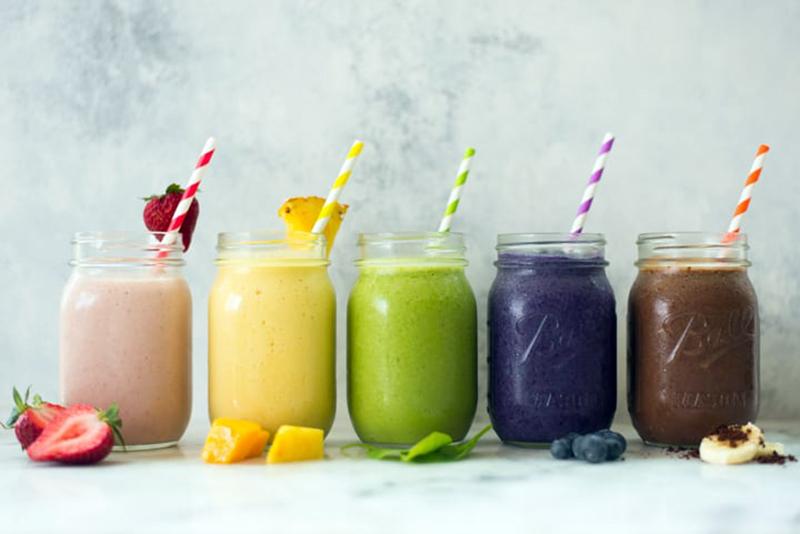The global fruit smoothies market is undergoing significant shifts, driven by evolving consumer preferences, emerging health trends, and industry innovations. As consumers become more conscious about their health, sustainability, and convenience, the way they approach smoothies is changing. This evolution in consumer behavior is pushing the market to adapt in order to meet new expectations. Let’s explore how these shifts are reshaping the fruit smoothies market and what trends are defining its future.
1. Health and Wellness-Centric Consumer Behavior
Health and wellness have become major drivers of consumer decisions across the food and beverage industry, and the fruit smoothie market is no exception. In recent years, consumers are increasingly opting for beverages that not only satisfy their taste but also offer nutritional benefits. This shift toward functional foods is reshaping how fruit smoothies are perceived and consumed.
-
Functional Ingredients: Today’s consumers are seeking more than just a sweet and refreshing drink. There is a growing demand for smoothies that offer specific health benefits, such as boosting immunity, improving digestion, or promoting energy. Smoothies fortified with protein, probiotics, fiber, vitamins, and adaptogens (e.g., turmeric, spirulina, or ashwagandha) are becoming increasingly popular. Brands are responding by adding more functional ingredients to meet the health needs of consumers.
-
Low-Sugar, Clean-Label Products: As awareness about the negative health effects of excessive sugar consumption grows, consumers are moving away from sugary beverages. Many fruit smoothie brands are reducing sugar content or using natural alternatives like stevia or monk fruit. Furthermore, there is a rising preference for clean-label products that contain no artificial additives, preservatives, or colorings.
-
Dietary Preferences and Specialization: Dietary shifts, such as the rise in veganism, gluten-free diets, and keto, are influencing smoothie formulations. Consumers are now looking for plant-based, dairy-free options or smoothies that align with specific diet plans. For instance, plant-based milks (almond, oat, soy) have become key ingredients in many smoothies, catering to the growing demand for non-dairy beverages.
2. Convenience and On-the-Go Consumption
One of the most significant shifts in the fruit smoothies market is the increasing demand for convenience. With busy lifestyles, consumers are looking for quick, healthy options that fit their fast-paced routines. This is leading to a surge in the popularity of ready-to-drink (RTD) smoothies and delivery-based smoothie services.
-
Ready-to-Drink (RTD) Smoothies: RTD smoothies are quickly becoming a staple in the market, offering consumers a convenient and healthful option. These smoothies are pre-packaged and ready to consume, catering to the on-the-go consumer who may not have the time to prepare a smoothie from scratch. Cold-pressed and organic RTD smoothies, in particular, are gaining traction due to their fresh taste and perceived health benefits.
-
Subscription Services and Delivery Models: Subscription services, which deliver smoothie kits or fresh smoothie packs directly to consumers’ homes, are on the rise. These services offer convenience, allowing customers to skip the preparation process while still enjoying nutritious smoothies. Companies like SmoothieBox and Daily Harvest are capitalizing on this trend, offering customized smoothie kits based on consumer preferences.
3. Increasing Demand for Sustainability
Environmental concerns are influencing consumer choices across industries, and the fruit smoothies market is no different. Sustainability has become a key consideration for both consumers and brands, leading to significant changes in the way smoothies are sourced, packaged, and marketed.
-
Sustainable Sourcing: Consumers are increasingly aware of the environmental impact of their food choices, and this extends to the ingredients used in smoothies. Many consumers now prefer organic and sustainably sourced fruits and vegetables, supporting brands that prioritize ethical farming practices. Local sourcing is also becoming popular, reducing carbon footprints and supporting local economies.
-
Eco-Friendly Packaging: With growing concerns about plastic pollution, consumers are demanding more sustainable packaging. Brands are shifting towards eco-friendly alternatives such as recyclable, compostable, or biodegradable packaging. Some smoothie brands are also opting for glass containers or using plant-based plastics to reduce their environmental impact.
-
Reducing Food Waste: Brands are embracing initiatives to reduce food waste by using "imperfect" fruits or by creating products that help consumers minimize waste at home. This focus on sustainability is not only helping the environment but also attracting environmentally conscious consumers who are looking for products that align with their values.
4. Customization and Personalization
Another trend reshaping the fruit smoothie market is the growing demand for personalized experiences. Consumers are increasingly looking for products that cater to their specific health goals, taste preferences, and dietary needs. This shift is encouraging smoothie brands to offer more customizable options.
- Personalized Smoothie Options: Some smoothie brands are capitalizing on this trend by offering consumers the ability to build their smoothies with tailored ingredients. Whether it's through in-store customization or online platforms, brands are offering fle



